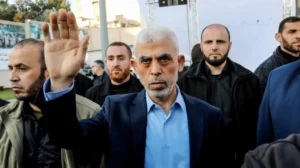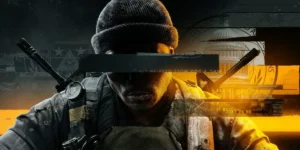Israel’s Response to the UN Court’s Order on Rafah: A Complex Stance


Police use water cannon to disperse demonstrators during a protest against Israeli Prime Minister Benjamin Netanyahu's government, and calling for the release of hostages held in the Gaza Strip by the Hamas militant group, in Tel Aviv, Israel, Saturday, May 25, 2024. (AP Photo/Ariel Schalit)
The United Nations Court’s order regarding the situation in Rafah marks a significant development in a long-standing and complex conflict. The court’s directives were aimed at addressing the ongoing humanitarian crisis in Rafah, a region that has seen significant turmoil and suffering. The order was issued in response to escalating violence and the deteriorating living conditions for civilians in the area, highlighting the international community’s concern over the situation.
Historically, Rafah has been a flashpoint in the Israeli-Palestinian conflict, with both sides experiencing substantial casualties and hardship. The region’s strategic location along the Gaza-Egypt border has made it a critical zone for both military operations and humanitarian aid efforts. Over the years, numerous UN resolutions and international calls for peace have attempted to mitigate the violence and improve conditions for the civilian population. Despite these efforts, the humanitarian crisis has persisted, prompting the UN Court to take decisive action.
The court’s order specifically mandated a ceasefire and the facilitation of humanitarian aid into Rafah. It called for both Israeli and Palestinian authorities to ensure the safe passage of medical supplies, food, and other essential resources to alleviate the suffering of the civilian population. Additionally, the court emphasized the need for both parties to respect international humanitarian law and to refrain from actions that would exacerbate the conflict or endanger civilians.
The legal basis for the court’s order rests on various international treaties and conventions, including the Geneva Conventions, which outline the obligations of warring parties to protect civilians and ensure their access to humanitarian aid. The court’s decision also draws on past precedents and resolutions that have called for similar measures in other conflict zones. The intended impact of the order is to create a more stable and secure environment in Rafah, allowing for humanitarian efforts to proceed unimpeded and for a potential de-escalation of hostilities.
Previous interactions between Israel and the UN regarding Rafah have been marked by a mixture of cooperation and contention. While there have been instances of compliance with UN directives, there have also been significant challenges and disagreements over the implementation of international measures. The court’s recent order is a continuation of the international community’s ongoing efforts to address the humanitarian and security issues in the region, reflecting the complex and multifaceted nature of the conflict in Rafah.
Israel’s Response and Justifications
Following the United Nations Court’s order regarding Rafah, Israel has articulated a multifaceted response, deeply rooted in security concerns, political dynamics, and legal arguments. Central to Israel’s stance is the assertion that the measures taken in Rafah are essential for safeguarding its national security. Israeli officials argue that the area is a significant conduit for smuggling arms and militants, posing a direct threat to its citizens. Consequently, Israel contends that any compliance with the UN order must be balanced against the imperative of ensuring the safety and security of its populace.
Politically, Israel’s actions are influenced by both domestic pressures and broader geopolitical considerations. Domestically, there is significant support for stringent security measures, particularly from communities that have been directly affected by conflict. On the international stage, Israel argues that unilateral compliance with the UN Court’s order without reciprocal actions from Palestinian factions could undermine its negotiating position and embolden militant groups. This stance has been met with a spectrum of reactions from the global community.
International bodies, including various UN agencies and human rights organizations, have expressed concern over Israel’s non-compliance, emphasizing the humanitarian implications for the residents of Rafah. Palestinian authorities have condemned Israel’s actions, viewing them as a violation of international law and an impediment to the peace process. On the other hand, some countries, particularly those with strong alliances with Israel, have shown understanding or support for Israel’s security-centric justifications.
Legally, Israel’s representatives have presented arguments questioning the jurisdiction and impartiality of the UN Court’s order. They posit that the unique and ongoing nature of the Israeli-Palestinian conflict requires a tailored approach that considers on-ground realities, rather than a one-size-fits-all mandate. These legal arguments highlight the complexities involved in international law enforcement within conflict zones.
The potential implications of Israel’s response are far-reaching. It impacts the peace process by potentially heightening tensions and complicating negotiations. Additionally, regional stability could be affected, as actions in Rafah resonate throughout the Palestinian territories and neighboring countries. Moreover, Israel’s approach could set precedents for how international law is interpreted and enforced in other conflict zones, signaling either a reinforcement or erosion of the UN’s authority in such matters.





